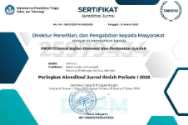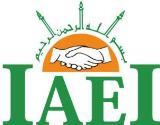SISTEM REGULASI DAN KEBIJAKAN PERPAJAKAN DI INDONESIA PERSPEKTIF EKONOMI ISLAM
(1) * Wartoyo Wartoyo
 (IAIN Syekh Nurjati Cirebon)
(IAIN Syekh Nurjati Cirebon) Indonesia
(*) Corresponding Author
AbstractTax is a fiscal instrument in macroeconomic theory that can be used by the government to make funding (budgetary function) and regulation (regurelend function) in overcoming economic turmoil that always occurs in a country. The taxation system in Indonesia continues to change to adjust to the conditions and economic trends that occur in the world, so it is not surprising that there have been several tax reforms, including the birth of the Final PPH policy, Sunset Policy and Tax Amnesty. The goal is nothing but to adjust the needs of the rules to the real conditions that occur in the world economy and also in society so that state revenues from the tax sector can be fulfilled and in accordance with the targets mandated by the APBN. In Islamic economics itself tax is not something foreign, because it has been practiced since the beginning of Islamic rule where there were various kinds of taxes applied such as zakat, kharaj, khums, jizyah and so on. in the dialectic of taxes and alms there are two thoughts that arise, first is that which punishes taxes as zakat and second is that which still distinguishes the two. This difference has basically found a meeting point with the integration of zakat as a tax deduction that can be accepted by all levels of society in Indonesia.
|
Full Text: PDF
Refbacks
- There are currently no refbacks.
Copyright (c) 2019 Wartoyo Wartoyo
This work is licensed under a Creative Commons Attribution-NonCommercial-ShareAlike 4.0 International License.
Profit : Jurnal Kajian Ekonomi dan Perbankan Syariah
Published by Islamic Faculty of Nurul Jadid University, Probolinggo, East Java, Indonesia.
Published by Islamic Faculty of Nurul Jadid University, Probolinggo, East Java, Indonesia.





.jpg)



